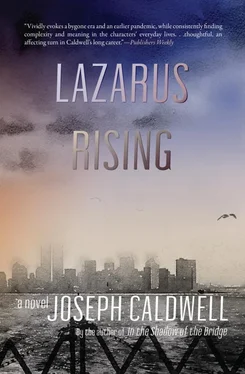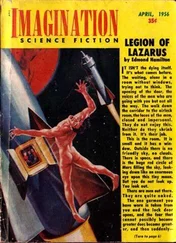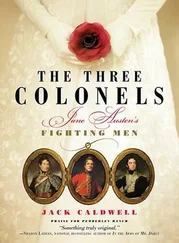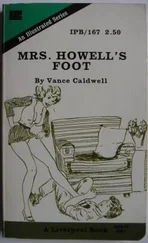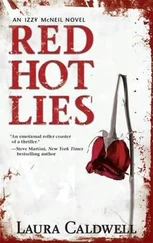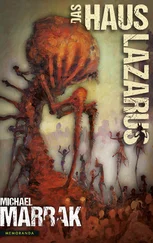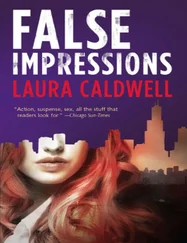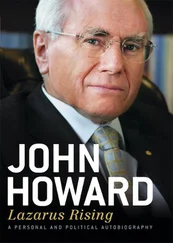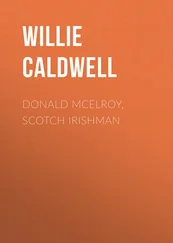A woman pushing a child in a wheelchair came along the path. A bright purple balloon tied to the back of the chair kept hitting the woman on the side of her head, but she didn’t seem to mind. The child, a boy, was wearing a Yankee baseball cap, the visor pointing upward, giving the child’s face no shade whatsoever. He wore a yellow nylon jacket over a plain white T-shirt and big khaki pants that seemed far too large. On his feet, braced against the retractable platforms at the ends of the leg supports, were oversized Timberland boots laced to the tops and tied in large bows. The child’s eyes were wide, but the face somewhat pinched. The woman pushing the chair seemed worried about bumping into something. Her eyes were watching the path and she was taking care that not even a pebble or a stone be allowed to jar the chair or its occupant. In front of the bench where Dempsey and Johnny were sitting was a discarded Pepsi bottle. The woman veered in the direction of the bench. The wheelchair, the child, the woman passed a few inches from Johnny’s toes. The balloon, as if in greeting, dipped in front of his face.
It hadn’t been a child. It was a young man wasted to a child’s size. On his face, unshaded by the baseball cap, were the unmistakable spots and stains of Kaposi’s sarcoma. His hands, gripping the sides of the chair as if he were afraid he might be pitched headlong onto the path, were already skeletal. His skin was stretched across the network of bones and the knotted knuckles. There was a quick whiff of urine, then the smell of the woman’s lilac perfume. Saliva drooled down the man’s chin from a slack and open mouth. The wheelchair moved on, the balloon still knocking against the woman’s head.
“Why not him too?” Dempsey whispered. Her face had turned to stone and she was staring straight ahead. Johnny put his arm behind her to draw her closer. Quickly she leaned forward, away from his reach. “No. I can’t. I wish… don’t.” Johnny withdrew his arm.
“Please,” she whispered, “let’s just sit here. At least for a little bit.” She took in a deep breath, then exhaled.
Tentatively Johnny started to reach out again, but stopped himself. “Sure,” he said. “If that’s what you want.”
Two of the gymnasts, coming toward and past each other, climaxed their act with quadruple back flips, passing each other directly in front of Johnny and Dempsey. Each of the men twisted his body in a complete turn, midair, then completed the final flip coming down on one knee, arms outstretched, head flung back. There was applause, some whistles, a few shouts. Dempsey managed a smile.
“Can you do that?” she said quietly.
“No. But I can wiggle my ears.”
Dempsey managed the expected small laugh.
One of the gymnasts was passing a pail along the line of tourists, accepting contributions.
But by now the line of tourists was moving, great hordes streaming onto the boat. Most of them ignored the collection by the gymnasts, so urgent were they to embark.
The gymnast looked down into the pail he’d been passing. Obviously disdainful of the meager take, he gave one last swing of the muscled arm, flinging the coins and the few dollar bills out over the heads of the moving throng. Not many responded until the movement in the line stopped and a new crowd pressed against the barrier. To occupy themselves for the wait, they stooped and collected the scattered largesse that seemed to have rained down from the sky so they would have something worthwhile to do during the wait for the next boat out.
Dempsey stood up. “Time,” she said. Johnny, too, stood up. They started along the path toward the ferry terminal.
Johnny stopped. “I’m not going,” he said.
“You are,” Dempsey said.
Johnny reached out toward her, but she, in turn, pulled back. Johnny let his arms fall to his sides. “All right, I’ll go,” he said. “But I’ll be back.”
Dempsey said nothing. “If I’m supposed to say goodbye, I won’t,” Johnny said. “I can’t.”
“Go,” Dempsey said. “You’re going to miss the ferry.”
Johnny grabbed her into his arms and pressed himself against her as tightly as he could. She seemed to resist at first then closed her arms around him and held him more desperately than ever before, no matter where, no matter what. Then she pulled away. On her face was a look of terror, as if what they had done were an act more dangerous than any they had yet performed. The terror vanished, and the bewilderment. Only a small and distant sorrow remained and even that was confined only to the eyes. She looked down. “Please go,” she whispered.
On the top deck Johnny stood and looked toward the promenade, beyond the line of waiting tourists, searching for the shaded seat where he and Dempsey had been, but he couldn’t find it. The ferry made the turn away from the slip, the motors sounding as if they were grinding sand. He looked down into the wake of the boat. Green waves crested with gray froth streamed out behind. Gulls were searching and squealing above the stern over Johnny’s head, mocking him. He saw Dempsey. She was standing near the tree where he’d slopped pizza onto his shirt. He raised his hand but didn’t wave. Dempsey saw him. She, too, raised her hand, then held it there. It was as if each was making a pledge to the other, swearing an oath the meaning of which they had yet to learn.
Johnny lowered his hand and Dempsey lowered hers. He stood where he was and watched. Neither he nor Dempsey moved. The ferry continued its lumbering way, the gulls still screeching, a sound like mocking laughter. Dempsey became smaller. And Johnny knew that to her, he, too, was beginning to disappear.
Dempsey had forgotten to warn Father Dunphy that the top half of the elevator door had the habit of lowering itself about six inches in rebound after it had been raised. Now it was too late. The priest had shoved the door all the way up, slamming the top part into the frame. It had bounced back and cracked the priest’s skull just above his forehead. Dempsey’s cry was louder than the priest’s and it was Dempsey, not Father Dunphy, who put her hand to her head in reflex against the injury.
“I should have told you!”
By now Father Dunphy was aware enough to realize he’d been hit on the head. He pressed a hand against the rising bump while Dempsey took his other hand and helped him safely into the loft. Carefully she lowered the offending door, wary of further misconduct. “I should have come downstairs myself with the elevator. It’s a strange beast. I’m really sorry.”
“Once, in the seminary, the branch of a tree fell on my head. Maple, and no leaves for a cushion. A real bonk. And pigeons, twice, have mistaken my balding head for a depository. I’m obviously a fair target and I won’t complain. Or sue.”
Dempsey led him to the couch in the living room area.
“Do you want to stretch out?”
“I’m not ready for that, I hope.”
“I’ll get some ice.”
“If it would make you feel better, but I hardly think it’s necessary.”
“It’s necessary for me. And I will feel better.”
Dempsey headed for the kitchen, the priest following. Without turning around, she was aware that he was giving the loft a fairly thorough once-over. She sensed his pause passing the worktable, his interest in the brushes she’d been cleaning, his examination of the backs of the paintings she’d turned to the wall so he wouldn’t see them, then his feet on the carpet near the couch, the halt just before to look to his right and observe the bedroom, the unmade bed, the spattered T-shirt and jeans thrown over a chair with, if she remembered correctly, a pair of sweat socks, white, and some sneakers tossed near the bathroom door.
Читать дальше
